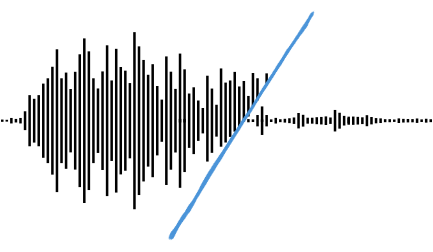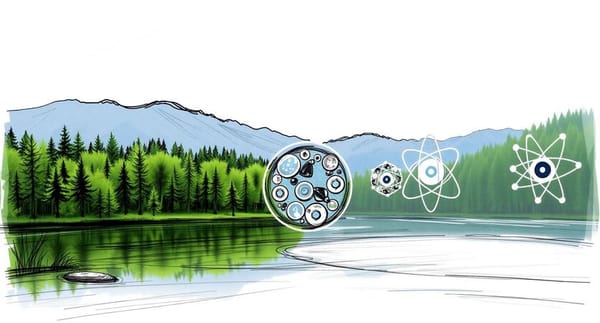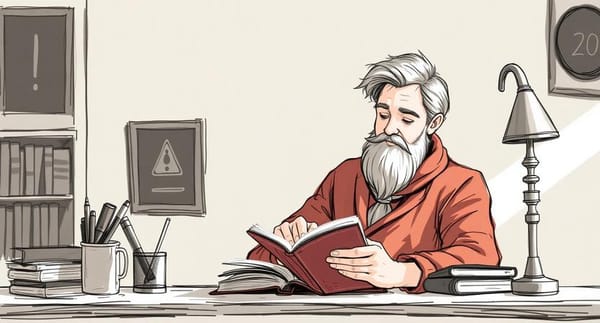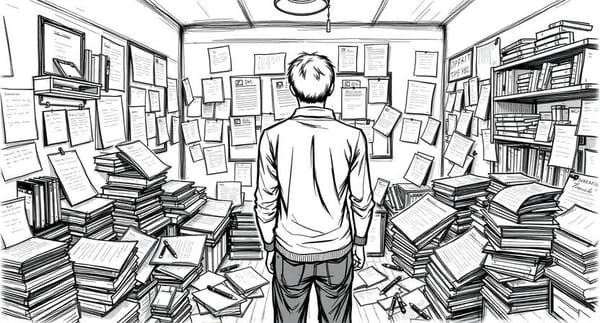Through the mind grinder
As the pandemic swept the world, my PhD project continued unchanged: utterly stuck. Its stubborn refusal to progress slowly took a toll. But despite mental decline, I would ultimately find what caused the problem.
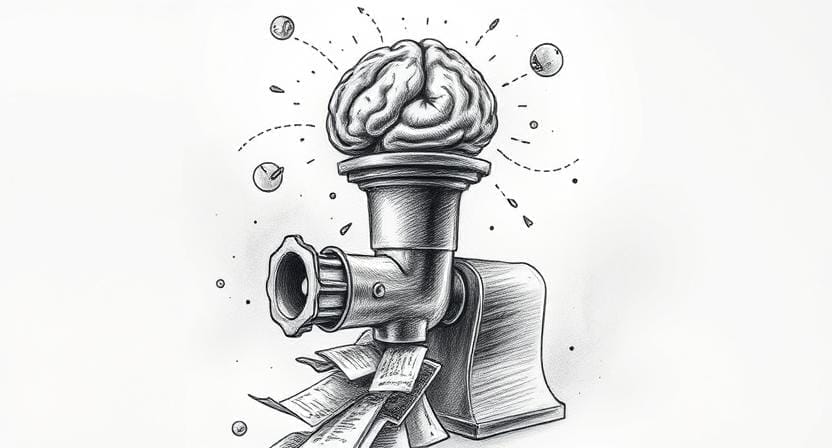
The first pandemic-induced lockdown was a welcome break for reflection. Over the past months, I had become familiar with the project, learned how to use the measurement device, and begun the core experiment—but despite my growing competence, I failed to produce any noteworthy results. It was thus a good moment to double-check things, so I used the time in home-office to review the project’s history and relevant literature, hoping to illuminate the blind spot.
I didn’t find anything that would explain the issue, and so I started everything from scratch upon returning to the lab. Though that would cost a bit of time, it seemed like the best approach. At best, the problem would simply disappear; at worst, it would remain, but allow me to understand when it first arose, thus providing at least a framework of potential solutions. I used fresh samples and chemicals, re-verified protocols, and when none of the quality checks indicated anything unexpected, I was optimistic. But when I ran the core measurement, there was no signal.
The problem would steadfastly persist, becoming increasingly agitating and confusing. I spent all my time searching for ways to isolate and examine potential error sources, but nothing revealed anything out of the ordinary. By a growing number of indications, the experiment should work—but each run yielded the same outcome: No signal could be found. I was stuck on my project’s first step, despite its theoretical simplicity.
It didn’t matter what I tried. Hours of effort, thousands of data curves, dozens of repetitions, week after week. It just didn’t make sense. A bad signal? Sure. Inconclusive results? Okay. Only few successful runs, ambiguous replications, or inexplicable findings that suggest defective measurements? Yes, please! But seeing no signal whatsoever just didn’t compute. It was as though I shone light on an object and then couldn’t find its shadow. It had to be there. Something had to be there.
Over time, frustration took its toll as it weakened my intellectual acuity. More and more often, I struggled to focus. I forgot or couldn’t recall things. Even simple concepts became difficult to grasp and they would never quite stick—a severe handicap in cognitively demanding circumstances.
I grew insecure, awkward, clumsy. Momentarily at first, but each instance added fuel to the vicious cycle that spun out of control. Every mistake, every lapse in judgment reinforced a pernicious self-doubt that would slowly conquer my psyche. Sleep became shallow, leaving me constantly fatigued. I developed a slight tremor and noticed my pulse throughout the day. Before I realised how serious things had become, life was dampened by an ineffable ether.
Self-doubt naturally grew as the project’s deadlock contrasted ever more clearly with my colleagues’ progress. My mind became increasingly desperate. It needed an answer, and in that frantic search turned inwards. Any last remnants of self-esteem were easily overpowered with insidious, incisive logic: If everybody else advances, if everything shows the experiment should work, and if a predecessor could do it, the verdict was obvious: I was simply incompetent and too stupid to notice.
At some point, the project’s stalling could no longer be ignored. This wasn’t a newcomer struggling to adapt, nor any regular issue of the scientific process. Something was odd about all this. Things had to change. It had become clear that I needed some distance and I was thus handed a side project. With the pandemic raging on, the lab (as many others) diverted significant attention to the researching of the virus itself, and one particular cooperation targeted the same type of interaction I was already addressing. It was a great opportunity that for one brief moment lifted my spirits. Finally, a glimmer of hope.
The new experiment was easily realised. It was extremely similar to my main approach and thus needed very little preparation. But the opportunity also brought pressure. Anything relating to the virus required results fast, while it was still the world’s focus, and before anyone else got there. Additionally, it felt like the last chance to actually finish my degree. All other prospects were fading while frustration mounted, so I needed the experiment to yield data.
It didn’t. There was no signal.
But the moment proved fruitful nonetheless: It was my unwitting first step to finally understanding the problem.
